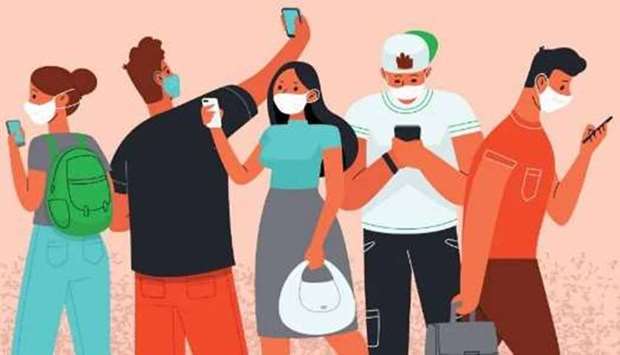Humanity is accustomed to using modern technologies in various fields, and the Internet and digital applications have become an essential part of our daily lives. We buy, shop, order food, hold business meetings, rent and sell apartments and buildings, and book plane tickets and hotels online.
Regarding this new digital life after the pandemic, Ruth Porat, Chief Financial Officer of Alphabet and Google, said during her participation in the Qatar Economic Forum that was held in Doha recently, “The shift towards digital has extended to all aspects and sectors. There is no going back, the change we see today is permanent and will deepen in the future, and it is very important for each of us to think about how we can take advantage of this transformation to develop and increase the efficiency of the business we do.”
During the pandemic and the long closing times that accompanied it, the restaurant sector closed almost completely to visitors around the world, and these restaurants suffered great suffering in the beginning, and little by little they depended on technology to continue to work, so orders for meals were made entirely via the Internet and various delivery applications.
Many expected that the need for these services would end after the ban ended, and restaurants were allowed to open their doors to visitors, but this never happened. Rather, online demand and modern applications to deliver meals continued as it was in the past, and increased in many cases.
In fact, a group of emerging companies that rely on modern technology in their work have played a key role in changing the way customers shop, whether to buy groceries and the requirements of daily life or order meals from different restaurants, and the technologies provided by these companies will contribute a vital role in the post-industry.
This is not confined to the food sector only, but extends to all sectors, even those that many people believe do not need modern technologies to work, and let us take a sector a little far from the daily needs of people, which is the real estate sector.
In fact, people have discovered the importance of digital and modern technologies in their lives and businesses, and the value of investing in technology has become more visible to humans during and after the epidemic, as 94% of the survey participants expected that technology investment will have a positive impact in improving their revenues during the next five years.
Brands have taken advantage of technologies such as augmented reality and virtual reality to connect with consumers and sell their products, with 31% of consumers using these technologies to purchase household items and furniture this year.
Yes, the form of life, the nature of work and its methods have changed, and “the clock will not turn back,”
* The author is a consultant in Public Relations and Personality Types. Instagram: @Tipsbyhalahill

